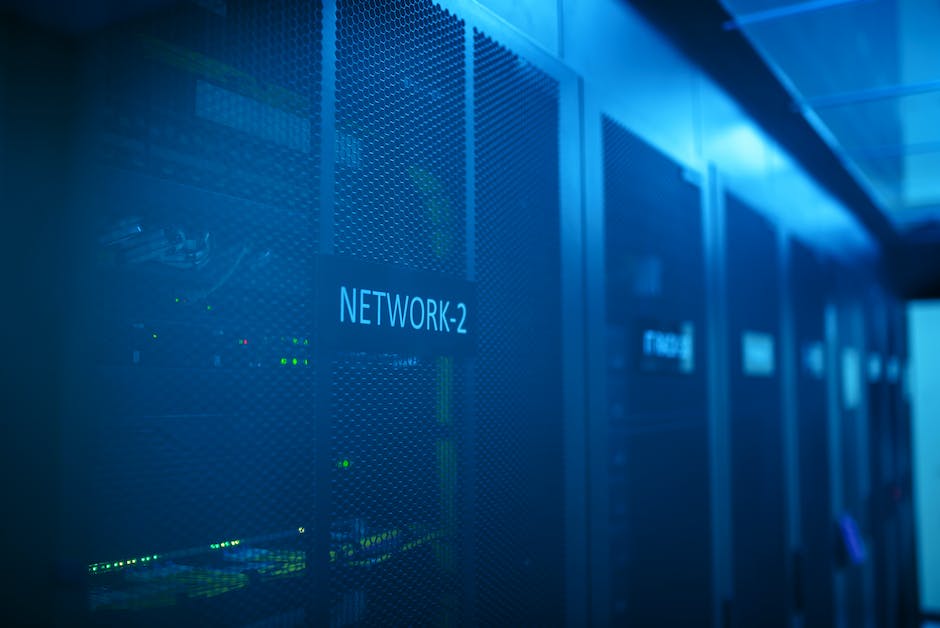When it comes to choosing a web hosting solution, the stakes are high. It’s not just about ensuring your website loads quickly or remains up and running; it’s also about safeguarding it from various online threats. This article aims to shine a light on the myriad of security risks associated with web hosting and underscores the importance of selecting a host that doesn’t just meet, but exceeds, your security expectations. As we explore the landscape of web hosting security, remember that being informed is your first line of defense in a digital world fraught with potential hazards.
Understanding Security Risks in Web Hosting
Key Security Risks with Web Hosting
Choosing the right web hosting solution is crucial for any website owner, but it’s not just about speed and uptime. Security risks lurk around the corner, creating potential nightmares for site owners and users alike. Understanding these risks helps in making informed decisions and implementing protective measures.
One major security risk is DDoS attacks. Short for Distributed Denial of Service, these attacks flood a website with more traffic than it can handle, making it inaccessible. Imagine trying to enter a room so packed that you can’t get through the door; that’s what happens to your website during a DDoS attack.
Malware also presents a significant threat. Malicious software can be injected into a website without the owner’s knowledge, targeting data theft or site vandalism. It’s like leaving your house keys under the doormat, only to come home to a burglarized house.
Breaches at the web host level can expose your website to various threats. If hackers break into your hosting provider’s system, they could access your site’s data. It’s akin to storing valuables in a bank vault, only to find out the bank’s security was compromised.
Another concern is the vulnerability of outdated applications. Failing to update web applications can leave security holes that hackers can exploit. It’s comparable to an unlocked door inviting thieves.
Shared hosting environments pose additional risks. If one website on a shared server is compromised, it could potentially lead to vulnerabilities across the board. It’s like living in an apartment complex where one breached unit could risk the security of all.
Data loss is yet another critical issue. Without regular backups, a security incident could wipe out your website’s data, equating to losing years of work in an instant.
Theft of sensitive data, including customer information, can have severe consequences. It’s critical to encrypt this data to mitigate risks. Picture keeping confidential files in a safe, but leaving the combination lying around.
Finally, phishing attempts can trick users into giving up personal information by mimicking your site. It’s akin to a con artist tricking someone by pretending to be a trusted friend.
Wrapping it up, securing a website goes beyond choosing a web host. It requires vigilance, regular updates, and an understanding of the security landscape to protect both your site and its visitors from harm.

Essential Security Features for Web Hosting
When choosing a web hosting service, the security features on offer can significantly impact the safety of your online presence. A secure web hosting provides a strong foundation to protect your website and its users from potential threats. Beyond previously discussed topics like DDoS attacks, malware, and data encryption, several other aspects are crucial for robust web hosting security.
SSL Certificates are a must-have in today’s digital age. Standing for Secure Sockets Layer, SSL certificates create a secure link between a website and a visitor’s browser. By ensuring all data passed between the two remains private and integral, SSL certificates are essential for all websites, especially those handling sensitive information. Look for hosting services that offer SSL certificates as part of their package or at the very least, facilitate easy integration.
Firewall protection is another key feature to demand from your web hosting service. A good firewall filters out malicious traffic and can prevent hackers from accessing your site. Some web hosts provide advanced firewall solutions that are specifically optimized for web applications. These solutions are more adept at identifying and mitigating threats that commonly target websites.
Antivirus and Anti-Malware software should be non-negotiable. The best web hosting services run regular scans for any malicious software that might have infiltrated your website. These tools are crucial for identifying threats early and removing them before they can do any harm.
Backups are an often overlooked aspect of web security. Yet, regular backups can be a lifesaver in situations where your website is compromised. Whether due to a hacking attempt or a simple error, having the ability to restore your site from a backup can prevent significant losses. Ensure your hosting provider offers automated and frequent backups, along with an easy restoration process.
Lastly, 24/7 monitoring and support can greatly enhance the security of your web host. A dedicated team that monitors server and network activities for any signs of suspicious behavior can quickly react to any breaches. Immediate response and support in the event of any security incident are invaluable for limiting damage and restoring services.
In conclusion, while the initial selection of a web hosting service might focus on performance and cost, the importance of comprehensive security features cannot be overstated. SSL certificates, firewalls, antivirus tools, regular backups, and constant monitoring underline a proactive approach to web security, ensuring both your and your users’ data remains protected. Selecting a hosting service that prioritizes these features will set a strong security foundation for your online presence.

Implementing Secure Access and Data Management
Secure Access and Data Management: A Deeper Dive into Web Hosting Security
In today’s digital era, safeguarding online spaces is not just about thwarting hackers and viruses; it’s about creating a fortress around your web assets. As businesses and entrepreneurs continue to lean heavily into web presence, the importance of implementing advanced secure access and data management protocols in web hosting cannot be overstated. But how does one fortify their digital domain effectively?
User Authentication: The First Line of Defense
At the heart of secure access lies robust user authentication processes. Moving beyond basic password protection, two-factor authentication (2FA) has become a cornerstone in fortifying access. By requiring a second form of verification – be it a text message code, an email, or an authentication app notification – 2FA dramatically reduces the chances of unauthorized access, ensuring that only verified users can make their way into the system.
Role-Based Access Controls: Gatekeepers of Data
Transitioning from access to management, role-based access control (RBAC) plays a pivotal role. RBAC ensures that users only have access to the information and functionalities necessary for their role within an organization. By categorizing users into roles and assigning permissions accordingly, businesses can minimize the risk of data breaches from within, effectively managing who has the capability to view, edit, or delete sensitive data.
API Security: The Unsung Hero
Application Programming Interfaces (APIs) are crucial for enabling software components to communicate. However, they also present a significant security risk if not properly managed. Implementing stringent API security measures, including regular audits, using API gateways, and employing rate limiting, can safeguard against unauthorized data access and ensure that operations run smoothly without exposing sensitive information.
Secure File Transfers: Ensuring Safe Passages
When data needs to move, security is paramount. Secure file transfer protocols, such as SFTP (Secure File Transfer Protocol) and FTPS (File Transfer Protocol Secure), ensure that data in transit is encrypted, making it unreadable to interceptors. Whether uploading website content or sharing critical files among teams, utilizing these protocols is essential for preventing data interception and ensuring that information reaches its intended destination safely.
Continuous Education and Training: Building a Human Firewall
Lastly, the importance of continuous education and training cannot be understated. A system is only as strong as its weakest link, and often, that link is human error. Regularly training staff on the latest cybersecurity threats and best practices reinforces the technical defenses established, creating a knowledgeable team capable of identifying and mitigating potential threats.
In conclusion, secure access and data management in web hosting is multifaceted, relying on a combination of advanced technology, strict protocols, and continuous education. By implementing these strategies, businesses can not only protect their digital assets but also build trust with their clients, ensuring a secure and reliable online presence.

Regular Monitoring and Maintenance for Security
In today’s digital landscape, the importance of implementing strong web hosting security measures cannot be overstressed. With businesses and individuals increasingly relying on online platforms for their operations, ensuring the integrity, confidentiality, and availability of web-hosted data is paramount. This is where regular monitoring and maintenance play a crucial role in safeguarding against potential cyber threats and ensuring uninterrupted service.
Regular Monitoring: A Proactive Defense Mechanism
Regular monitoring acts as the first line of defense against a multitude of cyber threats. It involves the continuous observation of web hosting environments to detect any unusual activities or anomalies that could indicate a security breach. By proactively identifying these threats, web administrators can take immediate corrective actions to mitigate risks. This is crucial in a time when cyber-attacks are becoming more sophisticated, making early detection essential in preventing potential damage.
Maintenance: Keeping Security Measures Up-to-Date
Maintenance, on the other hand, ensures that all security measures and systems are up to date. This includes the latest software updates, patches, and security protocols designed to protect against new and evolving threats. Regular maintenance activities ensure that vulnerabilities are promptly addressed, thus reducing the window of opportunity for cybercriminals to exploit. Moreover, it ensures that the web hosting platform remains compatible with the latest technologies and security standards, enhancing its reliability and performance.
Enhanced User Trust and Confidence
Establishing a secure web hosting environment through regular monitoring and maintenance not only protects sensitive data but also builds user trust and confidence. Customers and users are more likely to engage with platforms that demonstrate a commitment to security. This is especially important for businesses, where a breach can lead to significant reputational damage and loss of consumer trust, which can be devastating in the long term.
Compliance with Regulatory Standards
Many industries are subject to regulatory standards that mandate stringent data protection and privacy measures. Regular monitoring and maintenance of web hosting security help ensure compliance with these regulations, avoiding potential legal penalties and fines. For businesses operating in these regulated industries, adherence to these standards is not optional but a prerequisite for their continued operation.
Conclusion
In summary, regular monitoring and maintenance form the backbone of effective web hosting security. They provide a proactive approach to identifying and mitigating risks, ensuring that both data and infrastructure are protected against the ever-evolving landscape of cyber threats. Moreover, they play a critical role in maintaining customer trust and ensuring compliance with regulatory standards, which are indispensable for the success and longevity of online platforms.

Photo by paulius005 on Unsplash
The digital world is relentless, and the threats it harbors demand our constant attention. However, equipped with the right knowledge and tools, safeguarding your online domain is entirely within reach. A secure web hosting environment is not a luxury; it is a necessity in today’s interconnected world. As you fortify your website against these digital onslaughts, you not only protect your work but also build a foundation of trust with your users—a priceless asset in the digital age. With every measure you implement, remember that the goal is not just to ward off immediate threats but to establish a legacy of security and reliability that stands the test of time.
